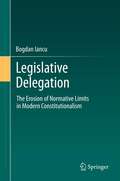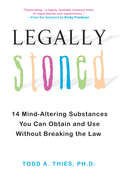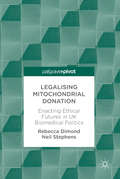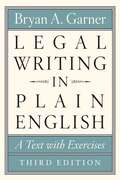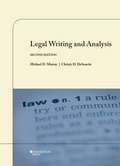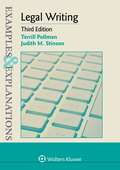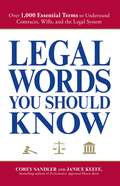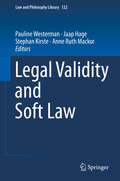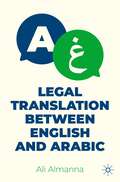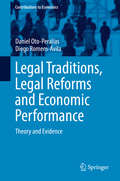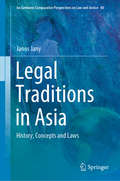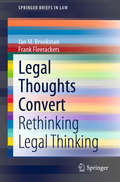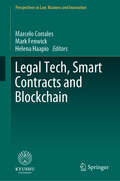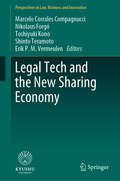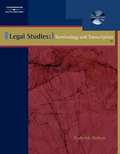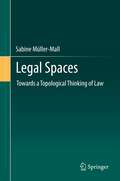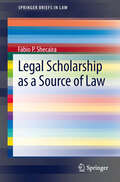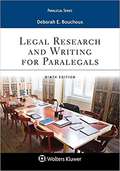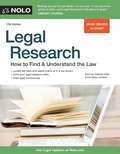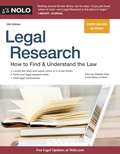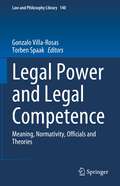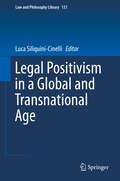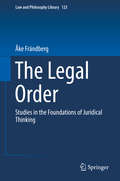- Table View
- List View
LEGO Amazing Earth: Fantastic Building Ideas and Facts About Our Planet
by Jennifer SwansonA whistle-stop tour of the most amazing features and places on planet Earth, illustrated with LEGO models, including tips for budding LEGO buildersExplore our amazing planet – and learn to build the most incredible things on Earth!There is so much to see on planet Earth. From the rainforest canopy to the deepest depths of the Pacific Ocean, discover plants, animals, and the geological features that make up our planet. Travel the continents and look inside volcanoes, mountains, geysers, and much more. Visit the Amazon, check out the world&’s tallest waterfall, and explore the most incredible places on the planet without leaving home. With more than 100 LEGO models to inspire you, what on Earth will you build? ©2023 The LEGO Group.
Legislative Delegation
by Bogdan IancuAn overarching question of contemporary constitutionalism is whether equilibriums devised prior to the emergence of the modern administrative-industrial state can be preserved or recreated by means of fundamental law. The book approaches this problem indirectly, through the conceptual lens offered by constitutional developments relating to the adoption of normative limitations on the delegation of law-making authority. Three analytical strands (constitutional theory, constitutional history, and contemporary constitutional and administrative law) run through the argument. They merge into a broader account of the conceptual ramifications, the phenomenon, and the constitutional treatment of delegation in a number of paradigmatic legal systems. As it is argued, the development and failure of constitutional rules imposing limits on legislative delegation reveal the conditions for the possibility of classical limited government and, conversely, the erosion of normativity in contemporary constitutionalism.
Legally Stoned: 14 Mind-Altering Substances You Can Obtain and Use Without Breaking the Law
by Thies Todd A14 Mind-Altering Substances You Can Obtain and Use Without Breaking The Law"A Euphoric, Crazy Trip."--Amanita muscaria mushroom userEveryone can get high...biologically speaking, that is. And it's just plain human nature to want to try it. Although the government stands in the way of this basic right, there are ways around the restrictions. On the road to altered consciousness, there's a perfectly legal route. With each of the fourteen psychoactive substances detailed in this book, you can get high, pass a urine drug test, and never once break the law."Totally Clear, Intense Hallucinations For Hours."--Ayahuasca userLegally Stoned provides a clear, practical guide for obtaining and using fourteen of the easiest to acquire, legal mind-altering agents. It also includes a description and history of each item, its chemistry and physiological reactions, accounts of its pleasures and perils, and any risks associated with it. Here are a few legal substances and their reported impact: * Amanita muscaria mushroom use leads to feelings of euphoria and auditory hallucinations * Anadenanthera peregrina/colubrina seeds have been known to cause intense visions of psychedelic light and color * Ayahuasca, which originated in South America, often produces visual hallucinations that include the jungle, exotic animals, even ancient native artwork! "Like Watching A Laser Light Show. . .Next Time I'll Take More."--Colubrina seed user"Fascinating . . . You are not merely holding a book; you are holding a key to the doors of perception. Legally Stoned is far more than an excellent, meticulously-researched sourcebook; it is a highly-readable treasure trove of experiments and experiences." --Kinky Friedman, musician, novelist, and politician"Legally Stoned is a well researched sourcebook for anyone interested in psychoactive substances that are currently legal in the United States. Legally Stoned cites scientific research and personal accounts to provide accurate descriptions of each substance's history, physiological effects, and the risks of use. Legally Stoned also challenges the rationality of the drug laws by describing the methods people often use to obtain and prepare each substance." --Krystle Cole, www.NeuroSoup.com, author of Lysergic and After the Trip"I refuse to plunge into paranoid speculation why many of the magical and sacred foods of the gods are made illegal and their communicants vilified. Instead, I bless and give thanks for books such as this, and intelligent and courageous souls such as Dr. Thies for their efforts to keep the doors of perception in full view for all of us to see." --Lon Milo DuQuette, author of My Life with the Spirits and Enochian Vision Magick"Todd Thies is the new millennium's Timothy Leary. His book covers the unexplored, mind-blowing universe outside of the DEA's crosshairs with insight and clarity. Legally Stoned is a fascinating read, a guided journey down the rabbit hole."--M. Chris Fabricant, author of Busted! Drug War Survival SkillsSo while wondering what the effects might be for you, just know that you have the option to obtain and use any of these, and many other, means of seeking a new level of awareness. It's completely legal; it's human nature; it's your right. What are you waiting for?With 16 pages of photosA Featured Alternate of the Quality Paperback Book Club
Legalising Mitochondrial Donation: Enacting Ethical Futures In Uk Biomedical Politics
by Rebecca Dimond Neil StephensIn 2015 the UK became the first country in the world to legalise mitochondrial donation, a controversial germ line reproductive technology to prevent the transmission of mitochondrial disease. Dimond and Stephens track the intense period of scientific and ethical review, public consultation and parliamentary debates preceeding the decision. They draw on stakeholder accounts and public documents to explore how patients, professionals, institutions and publics mobilised within ‘for’ and ‘against’ clusters, engaging in extensive promissory, emotional, bureaucratic, ethical, embodied and clinical labour to justify competing visions of an ethical future. They describe how this decision is the latest iteration of a UK sociotechnical imaginary in which the further liberalization of human embryo research and use is rendered legitimate and ethical through modes of consultation and permissive but strictly regulated licensing. Overall, this book presents a timely, multi-dimensional, and sociological account of a globally significant landmark in the history of human genetics, and will be relevant to those with an interest in genetics, Science, Technology and Society, the sociology of medicine, reproductive technology, and public policy debate.
Legal Writing in Plain English, Third Edition: A Text with Exercises (Chicago Guides to Writing, Editing, and Publishing)
by Bryan A. GarnerThe leading guide to clear writing—and clear thinking—in the legal profession for more than two decades, now newly updated. Admirably clear, concise, down-to-earth, and powerful—all too often, legal writing embodies none of these qualities. Its reputation for obscurity and needless legalese is widespread. Since 2001, Bryan A. Garner’s Legal Writing in Plain English has helped address this problem by providing lawyers, judges, paralegals, law students, and legal scholars with sound advice and practical tools for improving their written work. Now the leading guide to clear writing in the field, this indispensable volume encourages legal writers to challenge conventions and offers valuable insights into the writing process: how to organize ideas, create and refine prose, and improve editing skills. Accessible and witty, Legal Writing in Plain English draws on real-life writing samples that Garner has gathered through decades of teaching experience. Trenchant advice covers all types of legal materials, from analytical and persuasive writing to legal drafting, and the book’s principles are reinforced by sets of basic, intermediate, and advanced exercises in each section. For this third edition, Garner has retained the structure of the previous versions, with updates and new material throughout. There are new sections on making your writing vivid and concrete and on using graphics to enhance your argument. The coverage and examples of key topics such as achieving parallelism, avoiding legalese, writing effective openers and summaries, and weaving quotations into your text have also been expanded. And the sample legal documents and exercises have been updated, while newly added checklists provide quick summaries of each section. Altogether, this new edition will be the most useful yet for legal professionals and students seeking to improve their prose.
Legal Writing and Analysis (Coursebook Ser.)
by Michael Murray Christy DeSanctisThis law school text teaches the fundamentals of legal writing, analysis, and the American legal method. It fosters critical lawyering skills, such as how to identify a legal rule from a variety of sources, analyze and explain its components, apply the rule to answer a problem, and communicate the results in an effective manner. In the second edition, coverage of authority and rule formation have been streamlined and tightened. The authors have increased the visual appeal and content of callout boxes, charts, and tables; and they have replaced and shortened the length of examples so as to provide two to three times as many samples of practitioner writing in each chapter. With this new edition, the authors endeavor to train future lawyers to be ethical and professional issue-spotters, analysts, counselors, problem-solvers, and communicators working to advance their clients’ interests.
Legal Writing (Examples and Explanations)
by Terrill Pollman; Judith M. StinsonA favorite classroom prep tool of successful students that is often recommended by professors, the Examples & Explanations (E&E) series provides an alternative perspective to help you understand your casebook and in-class lectures. Each E&E offers hypothetical questions complemented by detailed explanations that allow you to test your knowledge of the topics in your courses and compare your own analysis.
Legal Words You Should Know: Over 1,000 Essential Terms to Understand Contracts, Wills, and the Legal System
by Corey Sandler Janice KeefeEvery day, people find themselves in legal situations. Mortgages are put in place, attorneys draw up wills, and credit cards are set up all the time. However, how many people actually understood the legal contracts they were signing? There's no excuse for being ignorant of the law when it comes to a dispute with a bank, a mortgage lender, or a lawyer. This book defines 1,000 essential words from the worlds of civil law, estates, lending, and elder affairs, such as abatement, residuary beneficiary, trust deed, variable rate mortgage, right of rescission, and more. Each word will be clearly defined, and includes a pronunciation key and an example of usage. This guide ensures you will know the law in no time!
Legal Validity and Soft Law (Law and Philosophy Library #122)
by Pauline Westerman Jaap Hage Stephan Kirste Anne Ruth MackorThis book features essays that investigate the nature of legal validity from the point of view of different traditions and disciplines. Validity is a fascinating and elusive characteristic of law that in itself deserves to be explored, but further investigation is made more acute and necessary by the production, nowadays, of soft law products of regulation, such as declarations, self-regulatory codes, and standardization norms. These types of rules may not exhibit the characteristics of formal law, and may lack full formal validity but yet may have a very real impact on people's lives. The essays focus on the structural properties of hard and soft legal phenomena and the basis of their validity. Some propose to redefine validity: to allow for multiple concepts instead of one and/or to allow for a gradual concept of validity. Others seek to analyze the new situation by linking it to familiar historical debates and well-established theories of law. In addition, coverage looks at the functions of validity itself. The discussion considers both international law as well as domestic law arrangements. What does it mean to say that something is valid? Should we discard validity as the determining aspect of law? If so, what does this mean for our concept of law? Should we differentiate between kinds of validity? Or, can we say that rules can be "more" or "less" valid? After reading this book, practitioners, scholars and students will have a nuanced understanding of these questions and more.Chapter 6 is available open access under a Creative Commons Attribution 4.0 International License via link.springer.com.
Legal Translation between English and Arabic
by Ali AlmannaThis is a coursebook designed for students of translation, which will also benefit professional translators as it covers key issues in contemporary legal translation. The book is divided into two main parts. The first, theoretical part, explores issues such as types of legal texts, readership, communicative purpose, global and local strategies, and modality in addition to analysing the common features of legal discourse in both languages, be they lexical, syntactic, or textual. The second, practical part, discusses issues such as legal rights, contractual obligations, torts, crimes, people and law. It focuses on all types of legal texts, regardless of their classification and examines legislative texts, which have acquired a certain degree of notoriety rarely equalled by any other variety of English.
Legal Traditions, Legal Reforms and Economic Performance
by Daniel Oto-Peralías Diego Romero-ÁvilaThis book investigates whether legal reforms intended to create a market-friendly regulatory business environment have a positive impact on economic and financial outcomes. After conducting a critical review of the legal origins literature, the authors first analyze the evolution of legal rules and regulations during the last decade (2006-2014). For that purpose, the book uses legal/regulatory indicators from the World Bank's Doing Business Project (2015). The findings indicate that countries have actively reformed their legal systems during this period, particularly French civil law countries. A process of convergence in the evolution of legal rules and regulations is observed: countries starting in 2006 in a lower position have improved more than countries with better initial scores. Also, French civil law countries have reformed their legal systems to a larger extent than common law countries and, consequently, have improved more in the majority of the Doing Business indicators used. Second, the authors estimate fixed-effects panel regressions to analyze the relationship between changes in legal rules and regulations and changes in the real economy. The findings point to a lack of systematic effects of legal rules and regulations on economic and financial outcomes. This result stands in contrast to the widespread belief that reforms aiming to strengthen investor and creditor rights (and other market-friendly policies) systematically lead to better economic and financial outcomes.
Legal Traditions in Asia: History, Concepts and Laws (Ius Gentium: Comparative Perspectives on Law and Justice #80)
by Janos JanyThis book offers a comparative analysis of traditional Asian legal systems. It combines methods from legal history, legal anthropology, legal philosophy, and substantive law, pursuing a comprehensive approach that offers readers a broad perspective on the topic. The geographic regions covered include the Near East, Middle East, Central Asia, India, China, Japan, and Southeast Asia. For each region, the book first provides historical and political context. Next, it discusses major milestones in the region’s legal history and political institutions, as well as its forms of government. Readers are then presented with fundamental principles and terms needed to understand the legal arguments discussed. The book begins with the Ancient Near East and important topics such as Jewish law. The next part considers Islamic law, while also exploring modern issues. The third part focuses on Hindu and Buddhist law, while the fourth part covers China and Japan. The book’s closing section examines tribal societies, e.g. Mongols, Pashtuns and Malays. Topics covered include the interaction of legal systems within a legal circle, inter-systemic interactions, reasons for the failure and success of legal modernization, legal pluralism, and its effects on Asian societies. Family law, law of obligation, criminal law, and procedural law are also explored.
Legal Thoughts Convert: Rethinking Legal Thinking (SpringerBriefs in Law)
by Jan M. Broekman Frank FleerackersThis book highlights how conversion via communication is one of the most important issues in legal thinking. A major aspect is its link with language – legal texts, judgments, opinions and legal concepts included. Further, conversion is connected to all social positions in law. But a jurist will not solely master specific social behaviors or become the manager of large-scale political fields of law as a legal scientist. A continuously changing integration opens up to his views on reality as it presents itself incessantly. Law and its functionaries are in a never-ending process of change in all domains of culture, which mark the 21st century. Conversions thus concern the riddle of wisdom and automatism, of individual privacy and social fixations, of philosophical considerations and converting flows.
Legal Tech, Smart Contracts and Blockchain (Perspectives in Law, Business and Innovation)
by Marcelo Corrales Mark Fenwick Helena HaapioThere is a broad consensus amongst law firms and in-house legal departments that next generation “Legal Tech” – particularly in the form of Blockchain-based technologies and Smart Contracts – will have a profound impact on the future operations of all legal service providers. Legal Tech startups are already revolutionizing the legal industry by increasing the speed and efficiency of traditional legal services or replacing them altogether with new technologies. This on-going process of disruption within the legal profession offers significant opportunities for all business. However, it also poses a number of challenges for practitioners, trade associations, technology vendors, and regulators who often struggle to keep up with the technologies, resulting in a widening regulatory “gap.” Many uncertainties remain regarding the scope, direction, and effects of these new technologies and their integration with existing practices and legacy systems. Adding to the challenges is the growing need for easy-to-use contracting solutions, on the one hand, and for protecting the users of such solutions, on the other. To respond to the challenges and to provide better legal communications, systems, and services Legal Tech scholars and practitioners have found allies in the emerging field of Legal Design. This collection brings together leading scholars and practitioners working on these issues from diverse jurisdictions. The aim is to introduce Blockchain and Smart Contract technologies, and to examine their on-going impact on the legal profession, business and regulators.
Legal Tech and the New Sharing Economy (Perspectives in Law, Business and Innovation)
by Toshiyuki Kono Nikolaus Forgó Marcelo Corrales Compagnucci Shinto Teramoto Erik P. M. VermeulenThe exponential growth of disruptive technology is changing our world. The development of cloud computing, big data, the internet of things, artificial intelligence, machine learning, deep learning, and other related autonomous systems, such as self-driving vehicles, have triggered the emergence of new products and services. These significant technological breakthroughs have opened the door to new economic models such as the sharing and platform-based economy. As a result, companies are becoming increasingly data- and algorithm-driven, coming to be more like “decentralized platforms”. New transaction or payment methods such as Bitcoin and Ethereum, based on trust-building systems using Blockchain, smart contracts, and other distributed ledger technology, also constitute an essential part of this new economic model. The sharing economy and digital platforms also include the everyday exchange of goods allowing individuals to commodify their surplus resources. Information and innovation technologies are used in order to then match these resources with existing demand in the market. Online platforms such as Airbnb, Uber, and Amazon reduce information asymmetry, increase the value of unused resources, and create new opportunities for collaboration and innovation. Moreover, the sharing economy is playing a major role in the transition from exclusive ownership of personal assets toward access-based exploitation of resources. The success of online matching platforms depends not only on the reduction of search costs but also on the trustworthiness of platform operators. From a legal perspective, the uncertainties triggered by the emergence of a new digital reality are particularly urgent. How should these tendencies be reflected in legal systems in each jurisdiction? This book collects a series of contributions by leading scholars in the newly emerging fields of sharing economy and Legal Tech. The aim of the book is to enrich legal debates on the social, economic, and political meaning of these cutting-edge technologies. The chapters presented in this edition attempt to answer some of these lingering questions from the perspective of diverse legal backgrounds.
Legal Studies: Terminology and Transcription (5th Edition)
by Wanda Roderick-BoltonThis text provides a basic understanding of legal vocabulary for administrative personnel in a legal office. Over 900 terms commonly used in the legal profession are included. Users will learn to define the terms and use them in a legal context. Keyboarding practice from printed copy will reinforce learning the correct spelling and proper use of each term.
Legal Spaces
by Sabine Müller-MallThis book is concerned with a central question in contemporary legal theory: how to describe global law? In addressing this question, the book brings together two features that are different and yet connected to one another: the conceptual description of contemporary law on the one hand, and methods of taking concrete perspectives on law on the other hand. The book provides a useful concept for describing global law: thinking of law spatially. It illustrates that space is a concept with the capacity to capture the relationality, dynamics, and hybridity of law. Moreover, this book investigates the role of topological thinking in finding concrete perspectives on law. Legal Spaces offers an innovative and interdisciplinary approach to law.
Legal Scholarship as a Source of Law
by Fábio P. ShecairaThis book is about the use of legal scholarship by judges. It discusses the possibility that legal scholarship may function as a genuine source of law in modern municipal legal systems. The book advances a number of claims, some conceptual, some empirical, some normative. The major conceptual claims are found in Chapters 2 and 3, where a general account of the notion of a source of law is provided. Roughly, sources of law are documents or practices (e.g. statutes, judicial decisions, official customs) from which norms can be derived that function as sources of content-independent reasons for judges to decide legal cases one way or another. The relevant notion of content-independence is derived (with qualifications) from H.L.A. Hart's jurisprudence. Indeed, the book's analysis of the concept of a source of law relies at various points on Hartian insights about law and legal reasoning. Chapter 4 argues that legal scholarship - or, more precisely, a particular type of legal scholarship that might be described as standard or doctrinal - can be, and indeed is, used as a source of law in modern legal systems. The conclusion that legal scholarship is used as a source of law (and thus as a source of content-independent reasons for action) may come as a surprise to those who associate judicial recourse to legal scholarship with judicial activism. This association is discussed and criticized in Chapters 5 and 6. It is argued that, in spite of a relatively common opinion to the contrary, legal scholarship can be used to mitigate discretion. In fact, it is precisely because it can be used in this way that judges sometimes refer to scholarship deceptively and suggest that it limits discretion in situations in which it really does not. The concluding chapter addresses potential objections not explicitly discussed in earlier chapters.
Legal Research And Writing For Paralegals
by Deborah E. BouchouxLegal Research and Writing for Paralegals emphasizes the skills and issues that paralegals encounter in practice. Thoroughly up-to-date, the Ninth Edition continues to combine clear text with visual aids, writing samples, tips, and pointers. Designed specifically for paralegal students, Deborah Bouchoux s classroom-tested approach teaches cutting-edge research skills, writing style, and proper citation form to equip students with an essential skill set and well-founded confidence. <p><p> The author's logical and comprehensive approach enhances students understanding. Part I covers Primary Authorities, Part II discusses Secondary Authorities, and Part III covers the basics of Legal Writing. In addition, Bouchoux integrates writing strategies into each research chapter to demonstrate the link between the two processes. Thorough coverage of electronic research includes chapters on both internet research and fee-based services. Bouchoux thoroughly explains proper citation form and the process of updating/validating legal authorities. The Legal Writing section includes samples of legal writing, such as letters, a court brief, and a legal memorandum.
Legal Research
by Editors Of Nolo Stephen EliasIf you're searching for information in a real or virtual law library as a paralegal, law student, legal assistant, journalist, or lay person, finding and accessing the laws that you need to read can be a challenge. Turn to Legal Research, which outlines a systematic method to find answers and get results. In plain, readable English, Attorney Stephen Elias explains, with plenty of examples and instructions, how to: read and understand statutes, regulations and cases evaluate cases for their value as precedent use all the basic tools of legal research practice what you've learned with "hands-on, feet-in" library exercises, as well as hypothetical research problems and solutions This easy-to-use and understand book has been adopted as a text in many law schools and paralegal programs. This edition has been condensed to be more readable and includes an expanded discussion on the use of legal research tools on the web.
Legal Research
by Stephen EliasLegal research made simple! If you're searching for information in a real or virtual law library as a paralegal, law student, legal assistant, journalist, or lay person, finding and accessing the laws that you need to read can be a challenge. Turn to Legal Research, which outlines a systematic method to find answers and get results. In plain, readable English, Attorney Stephen Elias explains, with plenty of examples and instructions, how to: read and understand statues, regulations and cases evaluate cases for their value as precedent use all the basic tools of legal research practice what you've learned with "hands-on, library exercises, as well as hypothetical research problems and solutions This easy-to-use and understand book has been adopted as a text in many law schools and paralegal programs. This edition has been condensed to be more readable and includes an expanded discussion on the use of new legal research tools on the web.
Legal Publishing in Antebellum America
by M. H. HoeflichLegal Publishing in Antebellum America presents a history of the law book publishing and distribution industry in the United States. Part business history, part legal history, part history of information diffusion, M. H. Hoeflich shows how various developments in printing and bookbinding, the introduction of railroads, and the expansion of mail service contributed to the growth of the industry from an essentially local industry to a national industry. Furthermore, the book ties the spread of a particular approach to law, that is, the "scientific approach," championed by Northeastern American jurists to the growth of law publishing and law book selling and shows that the two were critically intertwined.
Legal Power and Legal Competence: Meaning, Normativity, Officials and Theories (Law and Philosophy Library #140)
by Gonzalo Villa-Rosas Torben SpaakThis volume explores the concepts of legal power and legal competence in fourteen original, cutting-edge chapters by leading legal theorists. Legal power and legal competence are major topics in jurisprudence, as they concern a range of practices, common to all modern legal systems, that empower individuals to bring about changes in the respective system by changing their own legal position or the legal positions of others. This compilation covers five broad themes. The chapters in the first section address open questions on the meaning of legal power and legal competence, while those in the second tackle problems regarding their normativity. The third section is devoted to specifically exploring the relationship between legal power and constitutive norms. The fourth focuses on the analysis of legal officials and legal offices, while the fifth and final section assesses various theories of legal power and legal competence.
Legal Positivism in a Global and Transnational Age (Law and Philosophy Library #131)
by Luca Siliquini-CinelliA theme of growing importance in both the law and philosophy and socio-legal literature is how regulatory dynamics can be identified (that is, conceptualised and operationalised) and normative expectations met in an age when transnational actors operate on a global plane and in increasingly fragmented and transformative contexts. A reconsideration of established theories and axiomatic findings on regulatory phenomena is an essential part of this discourse. There is indeed an urgent need for discontinuity regarding what we (think we) know about, among other things, law, legality, sovereignty and political legitimacy, power relations, institutional design and development, and pluralist dynamics of ordering under processes of globalisation and transnationalism.Making an important contribution to the scholarly debate on the subject, this volume features original and much-needed essays of theoretical and applied legal philosophy as well as socio-legal accounts that reflect on whether legal positivism has anything to offer to this intellectual enterprise. This is done by discussing whether global and transnational cultural, socio-political, economic, and juridical challenges as well as processes of diversification, fragmentation, and transformation (significantly, de-formalisation) reinforce or weaken legal positivists’ assumptions, claims, and methods. The themes covered include, but are not limited to, absolute and limited state sovereignty; the ‘new international legal positivism’; Hartian legal positivism and the ‘normative positivist’ account; the relationship between modern secularisation, social conventionalism, and meta-ontological issues of temporality in postnational jurisprudence; the social positivisation of human rights; the formation and content of jus cogens norms; feminist critique; the global and transnational migration of principles of justice and morality; the Vienna Convention on the Law of Treaties rule of interpretation; and the responsibility of transnational corporations.
The Legal Order: Studies in the Foundations of Juridical Thinking (Law and Philosophy Library #123)
by Åke FrändbergIn this monograph a fundamental distinction is made between law and juridical thinking. Law is the content of legal rules and the systems of legal rules. Juridical thinking is the handling of the law by the lawyers. To this distinction corresponds a basic distinction between the language of law and the language of juridical thinking, and correlatively, between L-concepts (law concepts) and J-concepts (juridical or jurisprudential concepts). The monograph is devoted to the J-concepts, especially of technical (not ideological or evaluative) J-concepts. Four kinds of J-concepts are investigated: morphological J-concepts, those that help us to structure the law in a logical and functional way; topological J-concepts, those that help us to indicate the phenomena to which the law is applicable, and to separate the areas of application for different legal systems; praxeological J-concepts, those that help us to explore the relations between law and action, and methodological J-concepts, those that help us to describe the methods of the professional-juridical handling of the law. The work can be characterised as presenting a lawyer´s philosophy of law.

